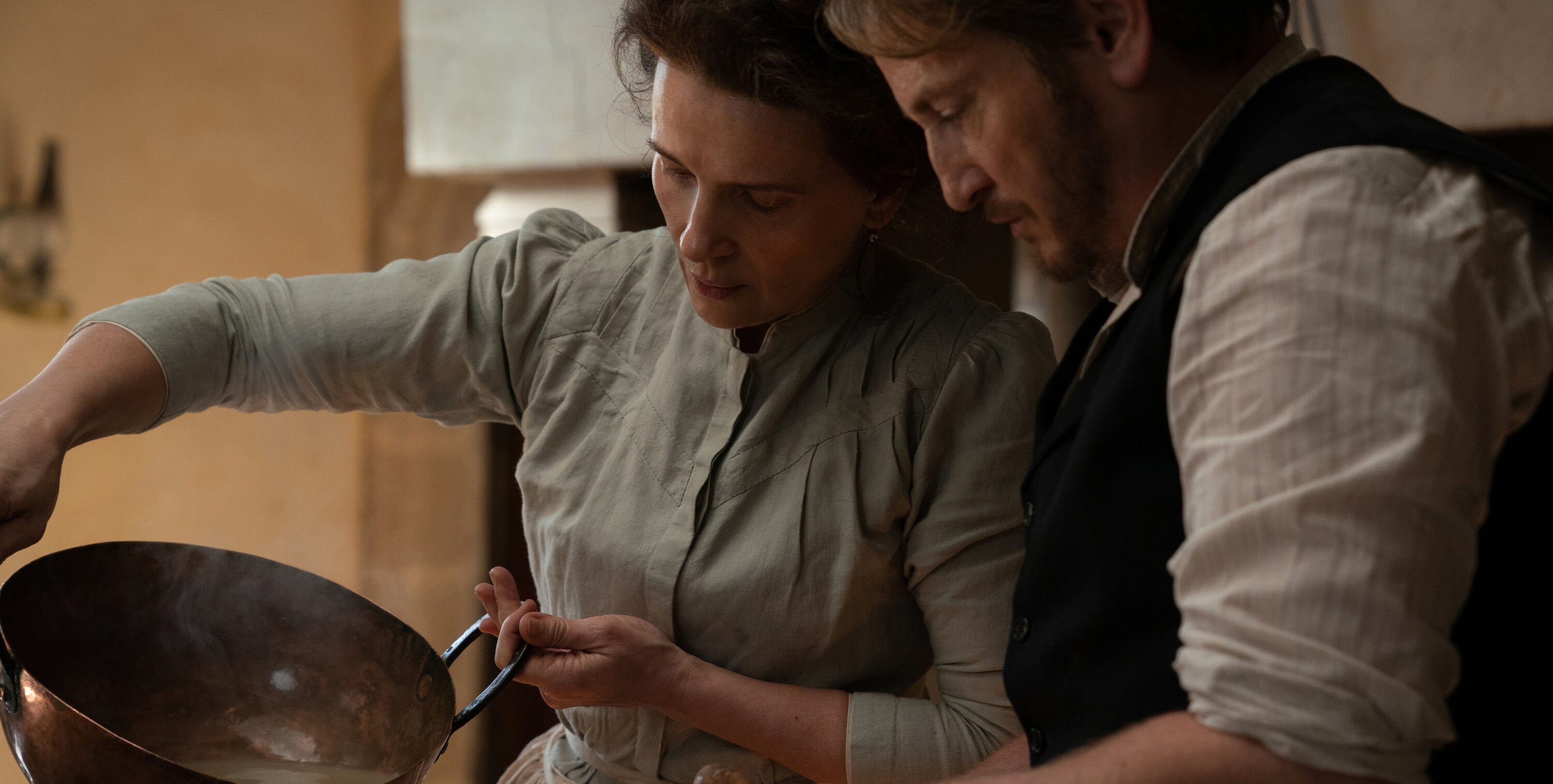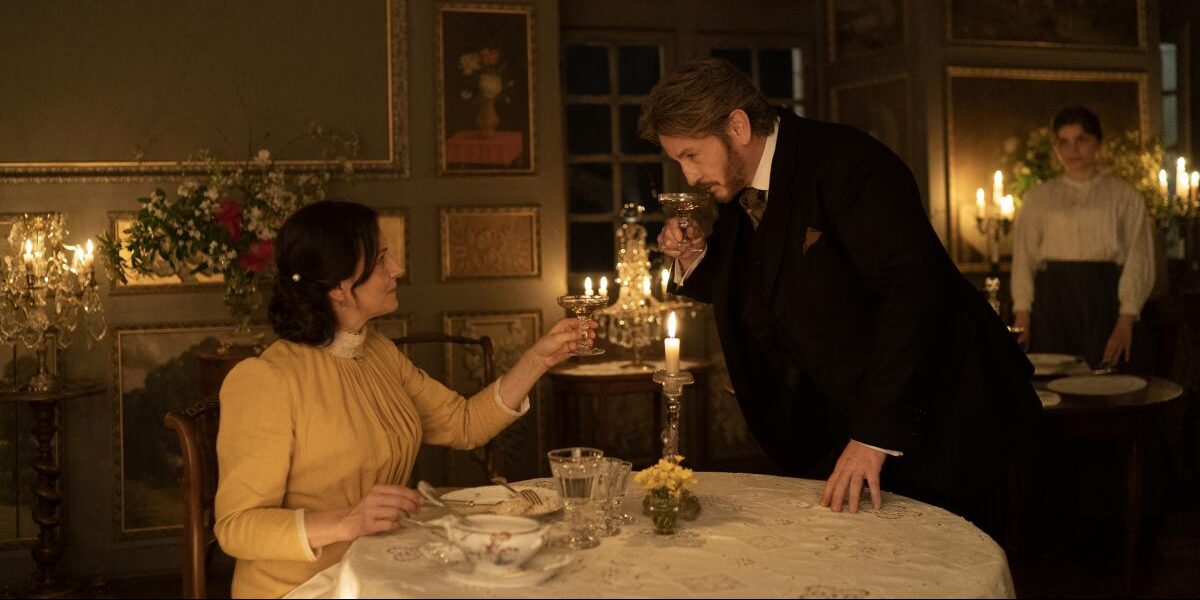Titled ‘La Passion de Dodin Bouffan’ in French, acclaimed director Trần Anh Hùng’s French historical romantic movie ‘The Taste of Things’ features compelling and heartfelt performances from the lead actors Juliette Binoche and Benoît Magimel who are supported by other talents, including Emmanuel Salinger, Patrick d’Assumçao, Galatea Bellugi, and Jan Hammenecker. Garnished with intense emotions, the narrative, set in 1885 France, follows an esteemed yet peerless cook named Eugénie, who has been working for the renowned gourmet Dodin for more than two decades. During this time, the two have bonded over their passion for food and have grown fonder of each other, which has led to their professional relationship transforming into a romantic one.
The romance between Eugénie and Dodin results in some of the most delicious dishes, as admired by the world’s most illustrious chefs. However, with Eugénie having a tough time letting go of her fondness for freedom, she shows hesitance to commit to Dodin and marry him. As a result, the latter, for once, decides to cook for his lover for the first time. Previously titled ‘The Pot-au-Feu,’ the drama film focuses on the art of food-making and how it has the ability to bring people closer. Given such authentic elements sprinkled throughout the narrative, it is bound to make the audience curious to find out if it is based on a true story or not.
The Taste of Things is a Fictional Tale Fused With Hùng’s Experiences in Culinary World
‘The Taste of Things’ is largely a work of fiction, but the character of the gourmet Dodin Bouffant is inspired by the eponymous character from the novel ‘La Vie et la Passion de Dodin-Bouffant, Gourmet’ written by Swiss author Marcel Rouff. Interestingly, it has been reported that the author loosely based the character of Dodin on the iconic French gastronome Jean Anthelme Brillat-Savarin. Using that character as a reference, the screenwriter and director Trần Anh Hùng decided to craft a prequel of sorts, delving into the life of Eugénie, who dies in the first chapter of the book.

Hùng and Rouff bring her back to life to immortalize her and her romance with her patron, Dodin, which spans more than 20 years. The former explained that through these two characters, he wanted to show love and friendship at the same time. Growing up in Vietnam, Hùng was aware of the importance of cooking as they ate with chopsticks, which conveys respect to everyone present at the table. There was no scope of aggression at the table. But when he moved to France, the transition possibly got him thinking about the possibility of creating a movie centered around cooking.
Therefore, Hùng had a vision to make a film capturing the meaning of food and cooking in France, where he migrated to when he was only 12 years old. During a conversation with Mercisf, Hùng was asked about the inspiration behind the movie. Then he began reminiscing about his experiences and the time he moved to France, “where the table is both a social place and a place of education. Roland Barthes wrote that it’s a violent place: with cutlery, we cut, we poke, we tear…”
The writer-director elaborated, “But for me, it was more the stress of questions asked: we go around the table and question guests, including children. ‘What are you reading now? Why?’ Conversely, it’s also a place of great palate sensuality and social exchanges, on dishes, and then on everything else. Cuisine has real political power. Napoleon, who didn’t like to spend much time at the table, understood it well when he assigned an excellent chef to his Prime Minister, Talleyrand, as he knew the power it conferred.”
He continued, “In the film, the kitchen transforms into a conversation between the two protagonists. It allows Eugénie to resist Dodin. As for him, he uses his cooking skills to show her how avant-garde he is, to seduce her. There’s this competition between them. And by the way, when she asks him if she’s his cook or his wife, he answers, ‘My cook!.’ It’s more rewarding for them.” Since the entire process of cooking food is a form of art in itself, the director chose to focus on it. According to him, the art of cooking is very concrete. Hùng told The Guardian, “For me, cinema is something that needs to be very sensual, very physical.” This is something he managed to capture in ‘The Taste of Things.’
Moreover, Hùng even alludes to the formal history of French food culture, which involves a proper way of setting a table, focusing on little details like the number of glasses and forks on the table, by calling Dodin “the Napolean of the culinary arts” as he also follows such culinary protocols. Taking into consideration all the above-mentioned factors, it would be fair to say that while the writers ensure to incorporate certain real-life elements from the world of culinary in ‘The Taste of Things,’ it doesn’t change the fact that the tale about Eugénie and Dodin is a work of fiction.


You must be logged in to post a comment.